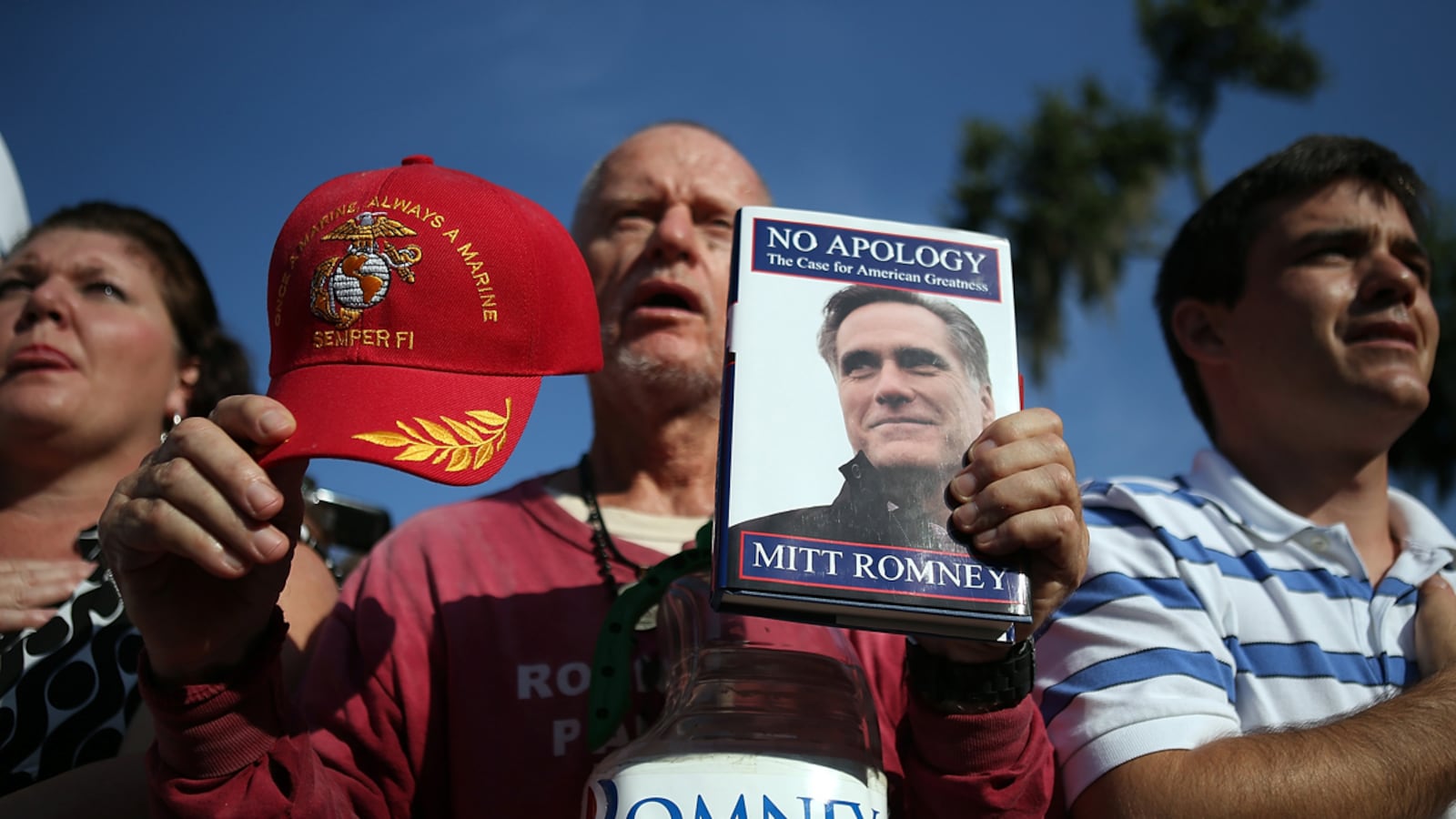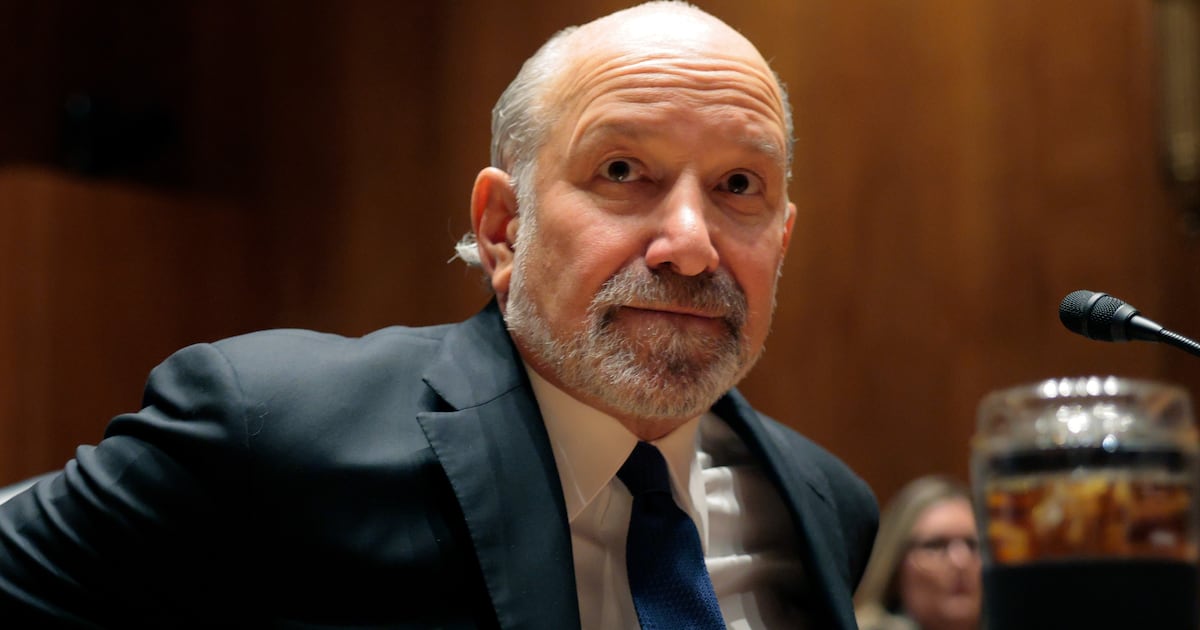This isn’t the Etch a Sketch we were expecting. When summer began, conventional wisdom held that Mitt Romney would reinvent (or perhaps, re-reinvent) himself by abandoning the hard-edged cultural views he had adopted during the primaries and reach out to women and Hispanics. Instead, as the summer comes to a close and the Republican National Convention gets underway, it’s increasingly clear that he’s doing the opposite. Call it the bubba strategy.

Consider what Romney has done in just the past three weeks. First, he chose conservative darling Paul Ryan as his running mate, passing over not merely safe white guys like Rob Portman and Tim Pawlenty but also Marco Rubio, Bobby Jindal, and New Hampshire Sen. Kelly Ayotte—candidates who might have signaled a more aggressive outreach to minority or women voters. Then he began running not one but two ads attacking Barack Obama for not being tough enough on welfare recipients, thus injecting an issue long associated with anti-black resentment into the campaign. Then last week he winked at the birther movement by noting that “no one’s ever asked to see my birth certificate.” Media reports swirled that Donald Trump, perhaps America’s most prominent birther, would address the Republican faithful in Tampa Bay. Now it looks like the Donald won’t be speaking after all.
This week’s convention underscores the degree to which Romney is not reaching out to those groups with which the GOP has traditionally struggled. To the surprise of many who thought that he would tap Rubio or Jindal to give the keynote address (especially since the Democratic Convention’s keynoter will be a young Hispanic mayor), Romney instead chose Chris Christie, whose chief appeal is to blue-collar, white-ethnic, Reagan-Democrat types, the same folks Reagan himself won over with issues like welfare. Although Rubio will introduce Romney at the convention, the GOP campaign is hardly going out of its way to woo Hispanic voters. As The Hill recently noted, “Romney himself has done few campaign stops with Latino voters outside of a June speech to the National Association of Latino Elected and Appointed Officials and a few stops in Florida, where the Cuban-heavy Hispanic population leans Republican.” The Obama campaign has spent far more on Spanish-language radio and TV. Romney’s also done little to distance himself from the hard-line immigration views he espoused during the primaries. Although he’s suggested he might support a path to citizenship for illegal immigrants who serve in the military, drafts of the GOP platform endorse no such view. To the contrary, the platform applauds Arizona-style immigration crackdowns and proposes denying federal money to universities that give illegal immigrants in-state tuition.
Then there’s abortion. First Romney chose Ryan, who wants to outlaw it even in cases of rape and incest. Now he looks set to preside over a GOP platform that eschews those exceptions as well. In 1996, Bob Dole tapped a pro-choice congresswoman, Susan Molinari, to give the keynote address. In 2000, George W. Bush gave another pro-choicer, Colin Powell, the slot. In 2008, John McCain tapped a third pro-choicer, Rudy Giuliani, and said he wanted to add rape, incest, and life of the mother exceptions to the platform. But even these relatively modest bids to appeal to pro-choice voters went further than anything Romney is doing this year.
At one level, Romney’s decision to try to rebuild the Reagan coalition—traditional Republicans plus working-class, culturally conservative Democrats and independents—makes sense. Going back to his primaries against Hillary Clinton, Obama has long struggled with non–college educated whites. The president’s Bain attacks have prevented Romney from amassing the roughly 20-point margin he needs among blue-collar whites to have a chance at victory, but, given their economic distress and distrust of the president, those voters may still be up for grabs. Going after the white working class also creates less friction with the GOP base than would a Hispanic or female-oriented strategy, since it doesn’t require Romney to moderate his views on immigration or abortion (which, given Romney’s own history of issue-switching, might have been impossible anyway).
Still, Romney’s new tack reveals the basic weakness of his candidacy. If Romney were a different guy, one with a more natural rapport with the GOP’s conservative base, he could reach out to Hispanics and pro-choice women without sparking a revolt. If the Republican Party were less purist and more desperate to win, its base might have let Romney run as the man that (as far as we can tell), he is: a business-minded technocrat open to pragmatic compromises on culture-war issues that he sees, fundamentally, as a distraction. Instead, Romney seems to have decided to run as a neo-Reaganite: neo-Reaganism being the worshipful desire to follow in the Gipper’s footsteps while maintaining an ideological militancy that Reagan himself never actually showed. And he’s doing so even as the American electorate becomes ever less Anglo, white, and male.
Already, powerful Republicans like Jeb Bush are expressing dismay at the GOP’s insistence on running campaigns that lag 30 years behind the shifting face of America. If Romney loses, his could be the last bubba-style campaign. For both the GOP’s sake and the country’s, let’s hope so.






